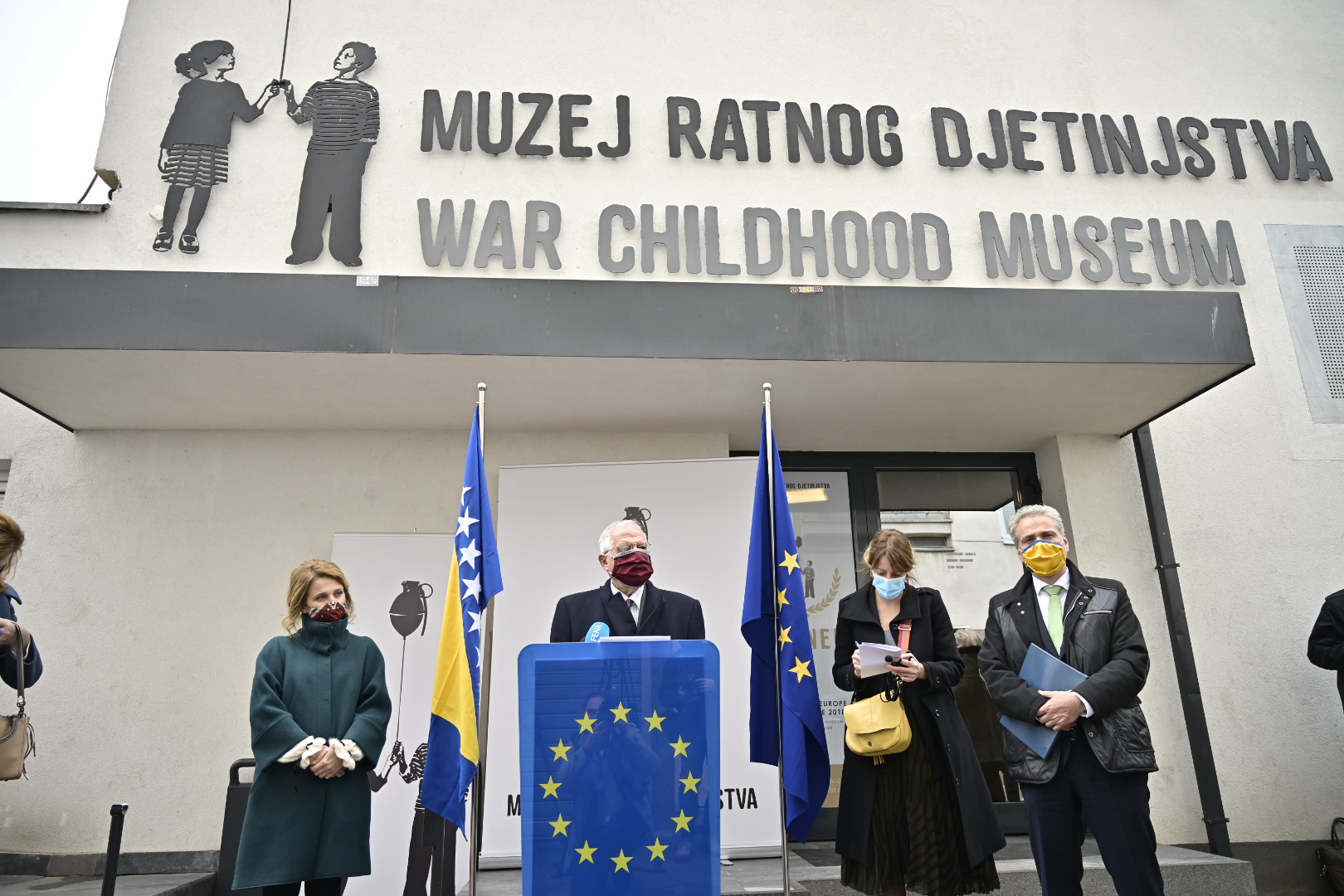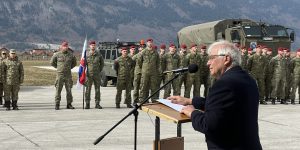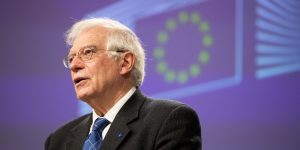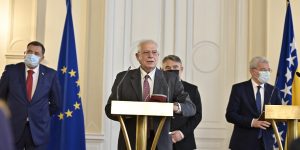– CHECK AGAINST DELIVERY –
Sarajevo, 21 November 2020
The war that swept across Bosnia and Herzegovina from 1992 to 1995 is one of the most shameful episodes in the modern history of Europe. It led to more than 100,000 victims, half of them civilians, and over a million refugees.
On the 25th anniversary of the end of the war and the Dayton Peace Agreement, I am here today to commemorate the loss of those lives, and to pay tribute to all the victims.
As we stand here in humility and solidarity, we must also take a moment to go beyond today’s event and critically revisit the past in order to learn lessons for the future.
Commemorating is accepting that the past echoes until today. Commemorating is understanding that the seeds of conflict will always be fertile, unless continuous steps are taken to preserve peace.
As a Spaniard, I fully grasp the difficulties of living with the consequences of a devastating war. The events of the Spanish Civil War and the suffering left a vivid memory in my family. And only when the dictatorship ended in 1975 did we begin to build a community based on reconciliation, democracy and freedom.
The prospect of joining the European Union was central in this and I believe the same applies to Bosnia and Herzegovina. The European Union is a project of peace and reconciliation.
The path to collective healing requires an understanding that the source of your pride may be deeply hurtful to others.
Political leaders who acknowledge the suffering caused, instead of exploiting conflict, help ensure that the crimes of individuals are not painted as a collective responsibility. Instead of focusing on the lack of actions by others, courageous leaders take a first step, so that others will follow.
When we talk about the path towards the European Union, we stress key values such as human rights, the rule of law and mutual cooperation. Empowering societies, favouring cooperation across borders, and promoting pluralism are the best way in disarming toxic nationalism.
Young people in particular deserve to be given opportunities to grow and to contribute to the Bosnia and Herzegovina of tomorrow.
While we remember today all civilian victims of war, standing in solidarity with the citizens of Bosnia and Herzegovina, the European Union pledges its continued commitment to a future free from conflicts, built on values, focused on building a prosperous and sustainable future.
And people’s expectations from the political leaders of this country, on its road to the EU, are nothing less.
This is why we are at this place here, and pay tribute to civilian victims of war and peacebuilding champions.
Hvala.




